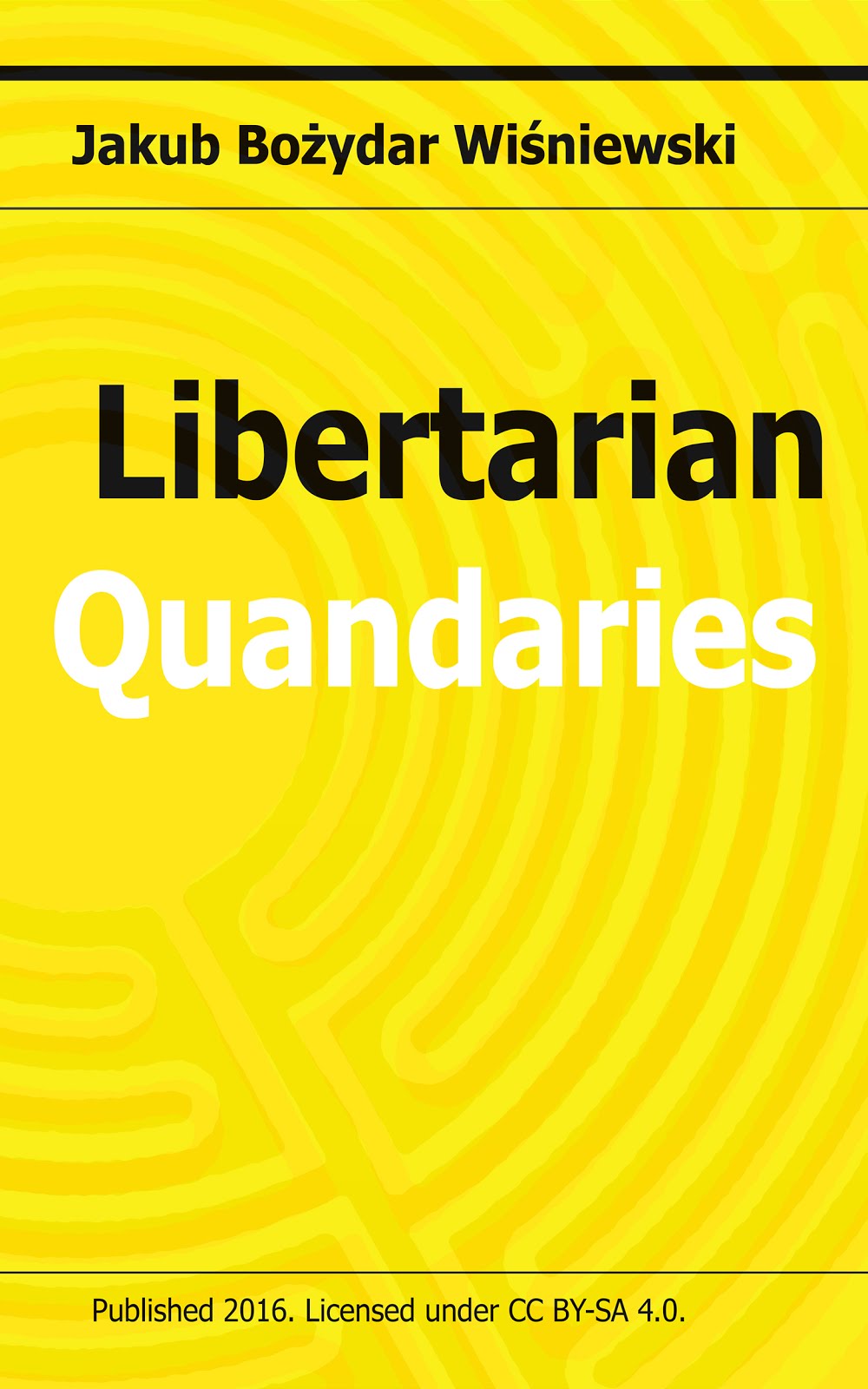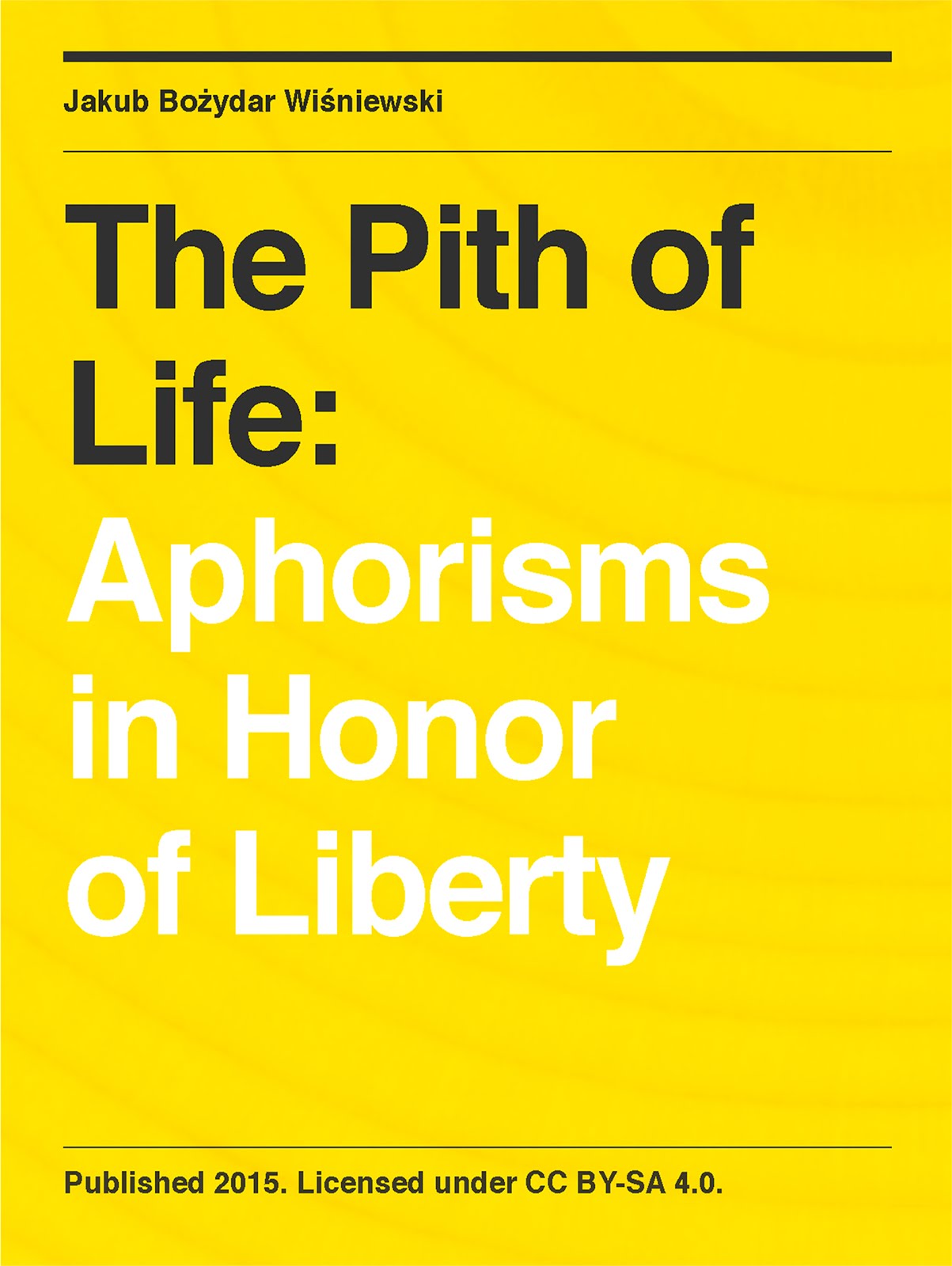1. In the paleolithic period, organized brute force was the only game in town in the context of inter-tribal rivalry. Thus, natural selection favored those who were obedient to tribal alpha males. The disobedient were simply killed off.
2. The way to make tribal obedience psychologically bearable and prudentially beneficial was to rationalize it. Thus, the obedient came to view their rulers as necessary for coordinating collective action and/or concerned with the welfare of the tribe. This was the earliest manifestaton of the Stockholm Syndrome. Again, natural selection favored those who succumbed to this syndrome especially easily.
3. The rulers realized that, being a numerical minority, they need legitimacy to maintain their rule. Thus, they set out to cultivate and strengthen the Stockholm Syndrome among their subjects. The pinnacle of their achievement in this regard was the invention of democracy -
a universal invitation to join the ranks of rulers, which decisively blurred the distinction between the rulers and the ruled, and ushered in a system where everyone is expected to feel entitled to live at the expense of everyone else.
4. As famously noted by Lord Acton and infamously demonstrated in the Stanford Prison Experiment, power is extremely corrupting. With the advent of democracy, the corrupting effects of power became particularly widespread. This, coupled with the complementary effects of global Stockholm Syndrome, made belief in (political) authority - i.e., the belief that some people have a right to rule other people - practically universal.
Monday, September 30, 2013
Sunday, September 29, 2013
All of Sound Social Science Consists of Footnotes to Bastiat
Whitehead once remarked that all of Western Philosophy consists of footnotes to Plato. I would argue that all of sound social science consists of footnotes to Bastiat. In a global society that outgrew its destructive irrationality and reached the level of informed decency, Bastiat would be synonymous not only with common sense, but with the best kind of wisdom - transparent, modest, and timeless - that the human mind can produce.
"Either fraternity is spontaneous, or it does not exist. To decree it is to annihilate it. The law can indeed force men to remain just; in vain would it would try to force them to be self-sacrificing."
"When plunder becomes a way of life for a group of men in a society, over the course of time they create for themselves a legal system that authorizes it and a moral code that glorifies it."
"The State is the great fiction through which everyone endeavours to live at the expense of everyone else."
"No legal plunder: This is the principle of justice, peace, order, stability, harmony, and logic. Until the day of my death, I shall proclaim this principle with all the force of my lungs (which alas! is all too inadequate)."
"It seems to me that this is theoretically right, for whatever the question under discussion—whether religious, philosophical, political, or economic; whether it concerns prosperity, morality, equality, right, justice, progress, responsibility, cooperation, property, labor, trade, capital, wages, taxes, population, finance, or government—at whatever point on the scientific horizon I begin my researches, I invariably reach this one conclusion: The solution to the problems of human relationships is to be found in liberty."
"Either fraternity is spontaneous, or it does not exist. To decree it is to annihilate it. The law can indeed force men to remain just; in vain would it would try to force them to be self-sacrificing."
"When plunder becomes a way of life for a group of men in a society, over the course of time they create for themselves a legal system that authorizes it and a moral code that glorifies it."
"The State is the great fiction through which everyone endeavours to live at the expense of everyone else."
"No legal plunder: This is the principle of justice, peace, order, stability, harmony, and logic. Until the day of my death, I shall proclaim this principle with all the force of my lungs (which alas! is all too inadequate)."
"It seems to me that this is theoretically right, for whatever the question under discussion—whether religious, philosophical, political, or economic; whether it concerns prosperity, morality, equality, right, justice, progress, responsibility, cooperation, property, labor, trade, capital, wages, taxes, population, finance, or government—at whatever point on the scientific horizon I begin my researches, I invariably reach this one conclusion: The solution to the problems of human relationships is to be found in liberty."
Labels:
Bastiat,
common sense,
economics,
logic,
politics,
reason,
social science,
sociology
Sunday, September 1, 2013
The Contractarian Quadrilemma
If the social contract can be made in the state of nature, then the state is redundant.
If the social contract cannot be made in the state of nature, then the state is impossible.
If no social contract is in fact made in the state of nature, then the state is unjustified.
If no social contract needs to be made in the state of nature, then the state is a fiction.
If the social contract cannot be made in the state of nature, then the state is impossible.
If no social contract is in fact made in the state of nature, then the state is unjustified.
If no social contract needs to be made in the state of nature, then the state is a fiction.
Labels:
anarchy,
cooperation,
coordination,
hobbes,
Locke,
philosophy,
social contract,
state
Subscribe to:
Posts (Atom)


